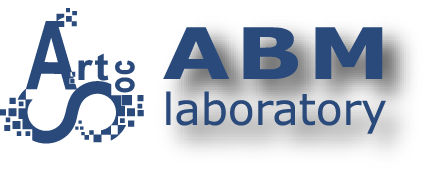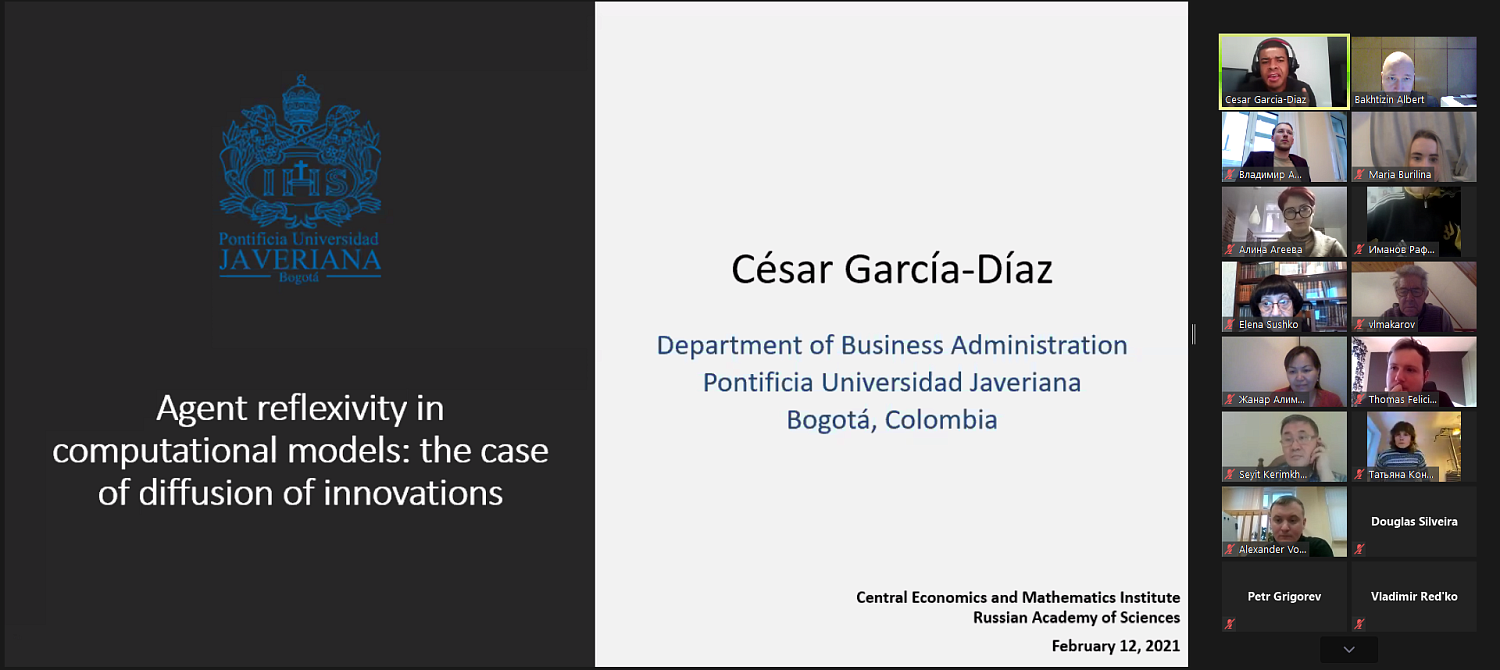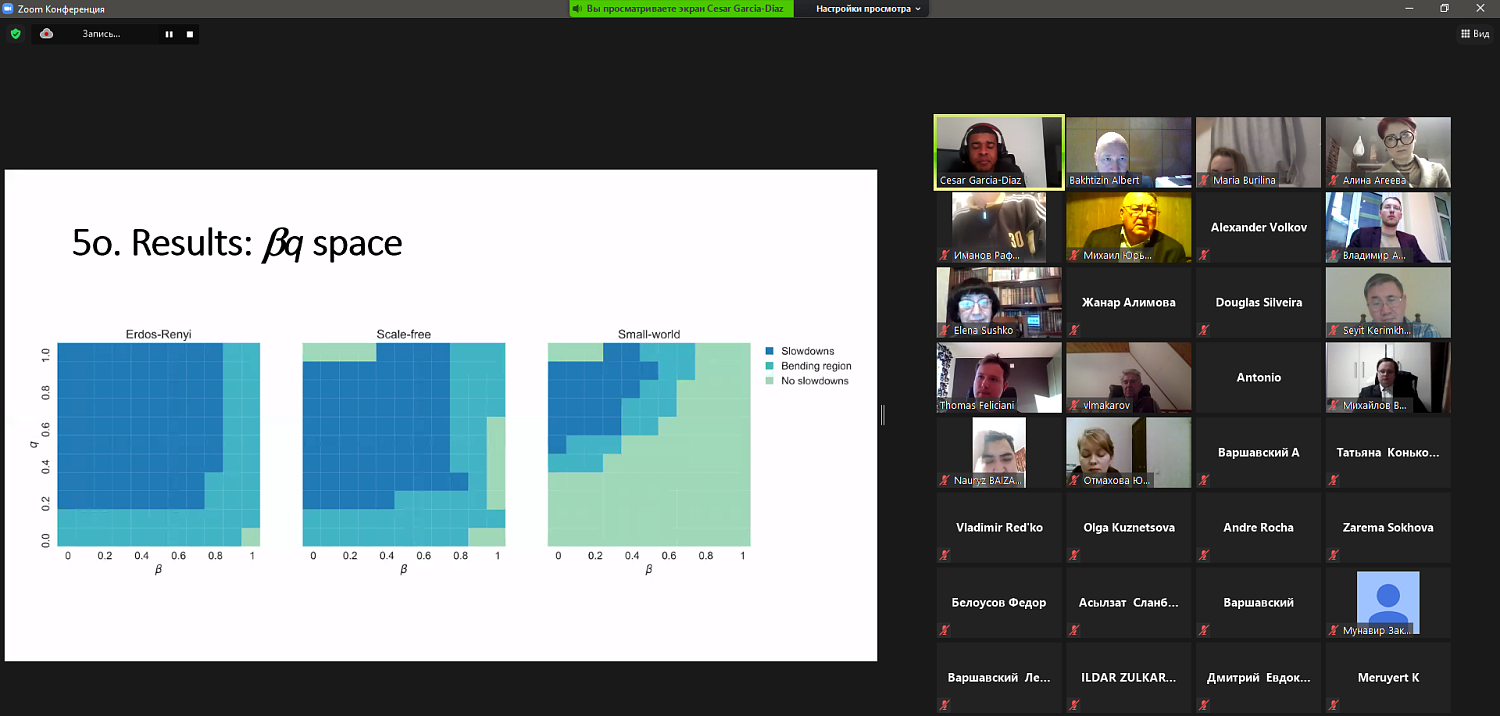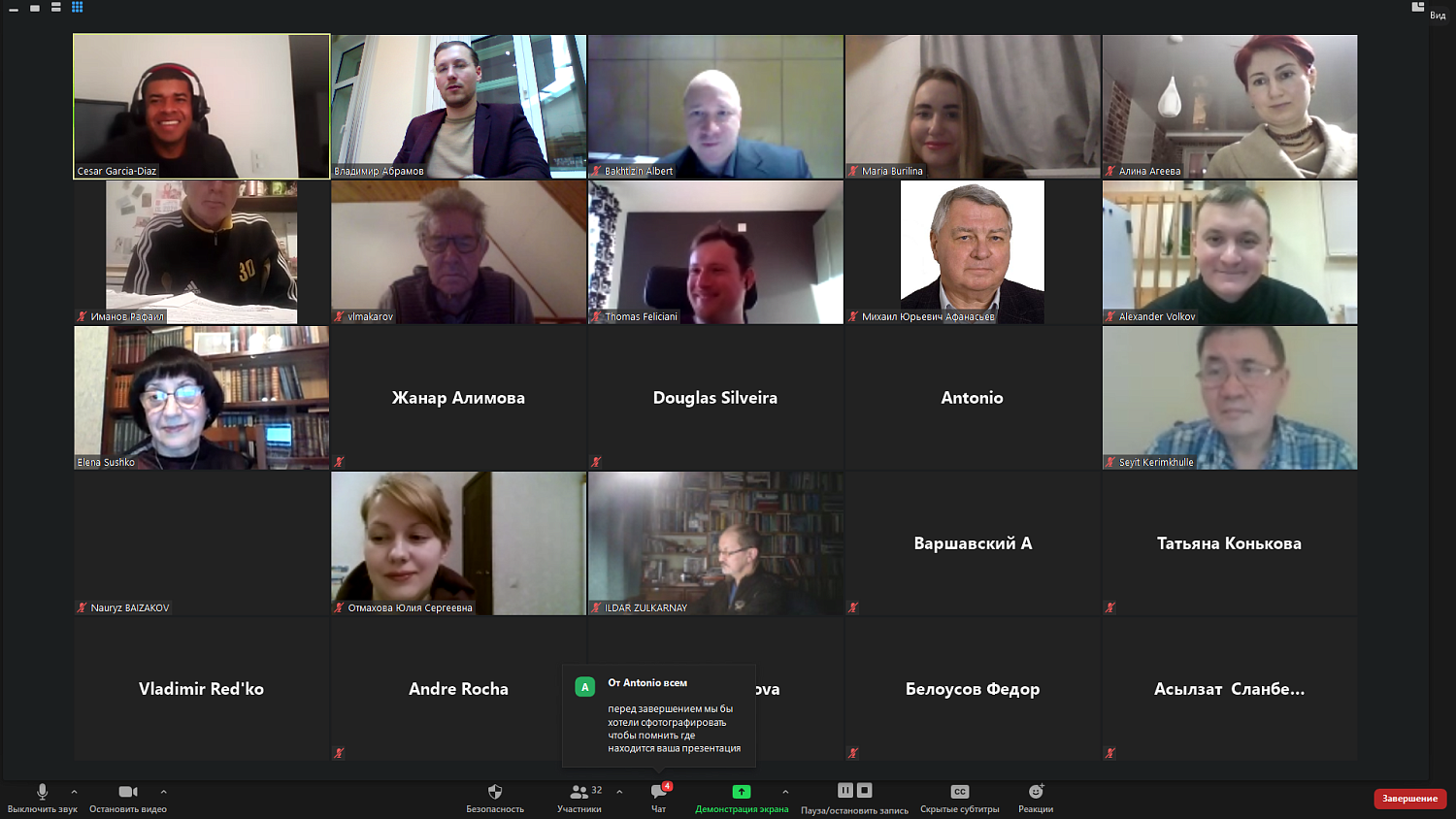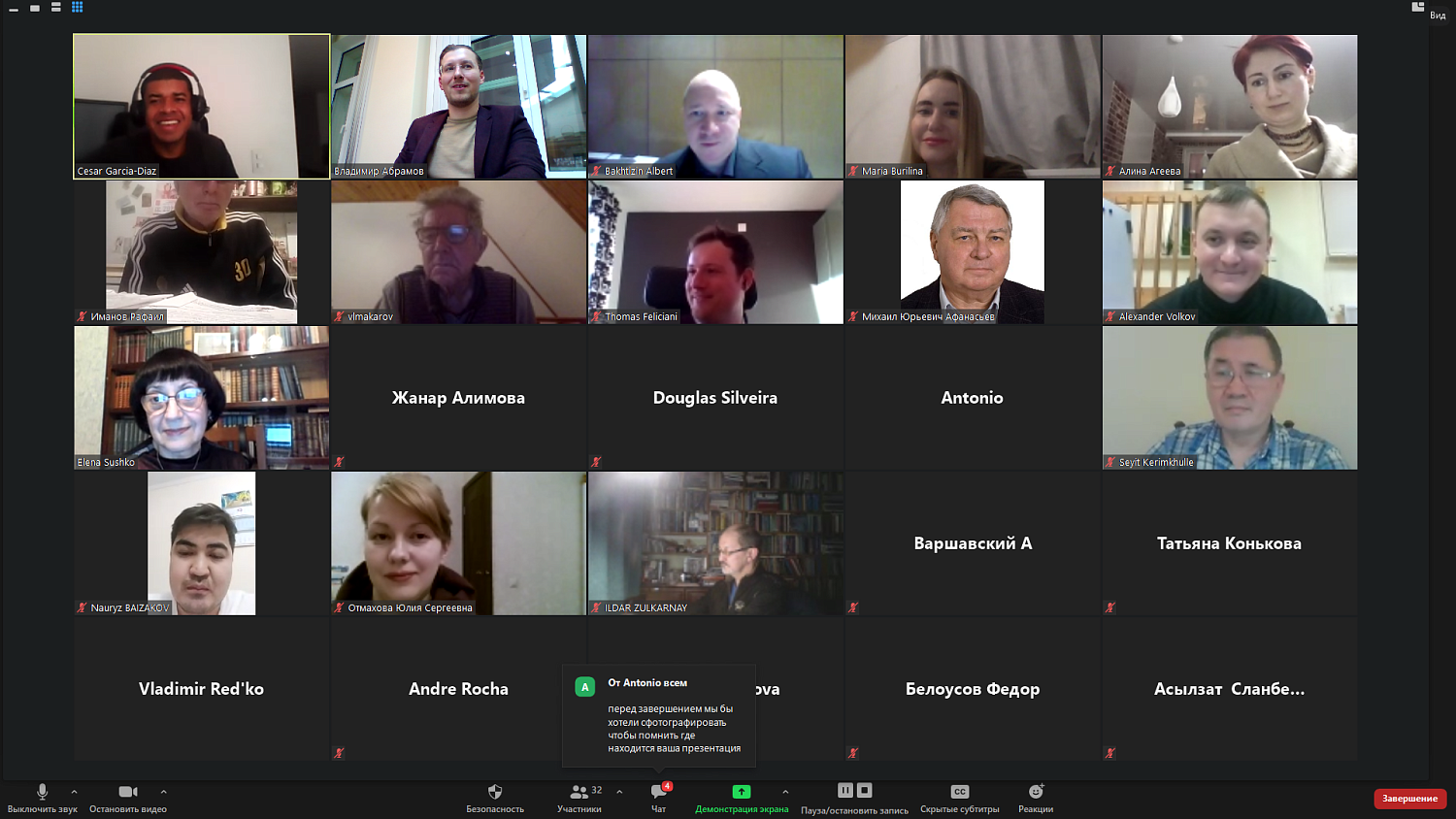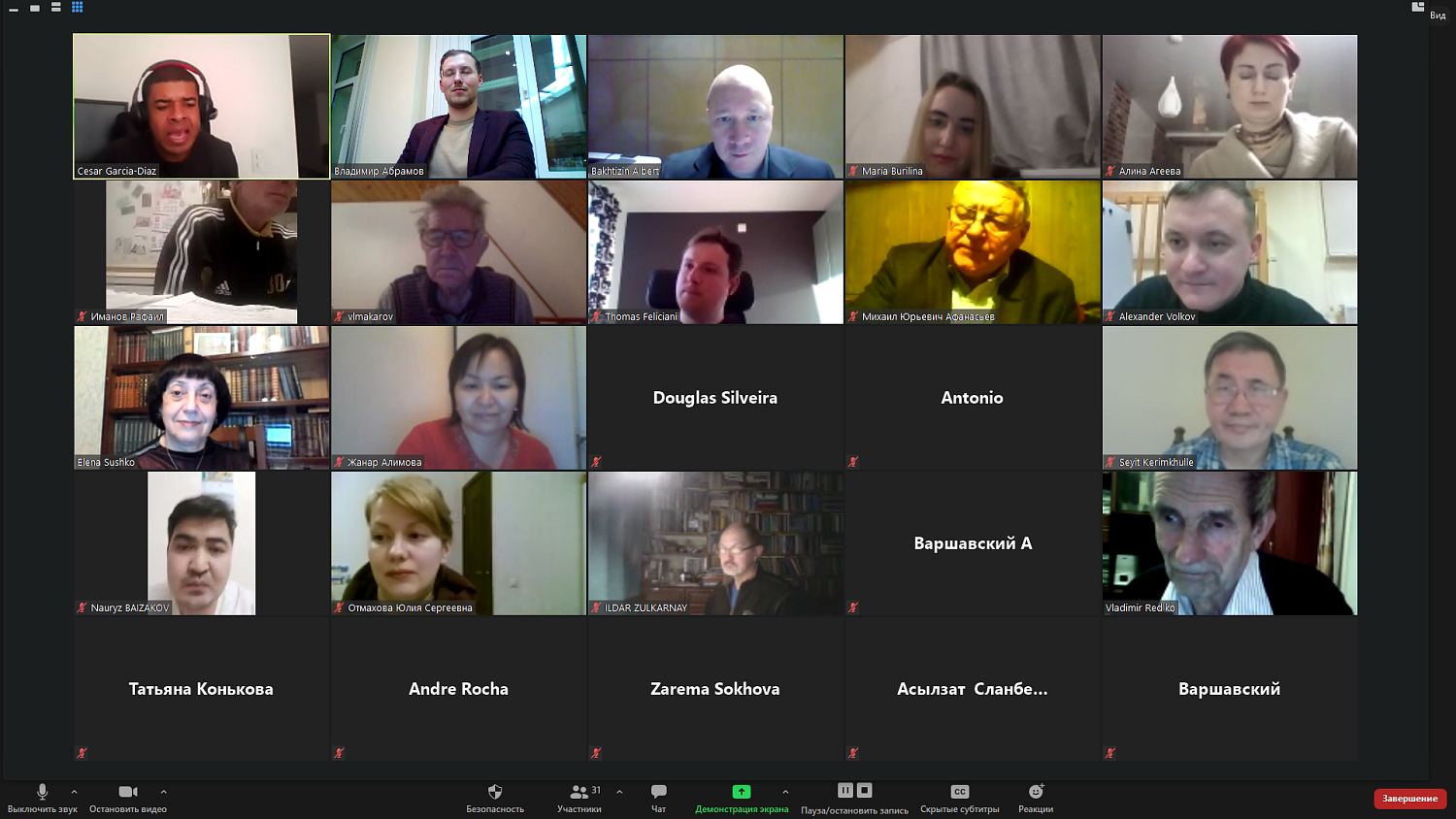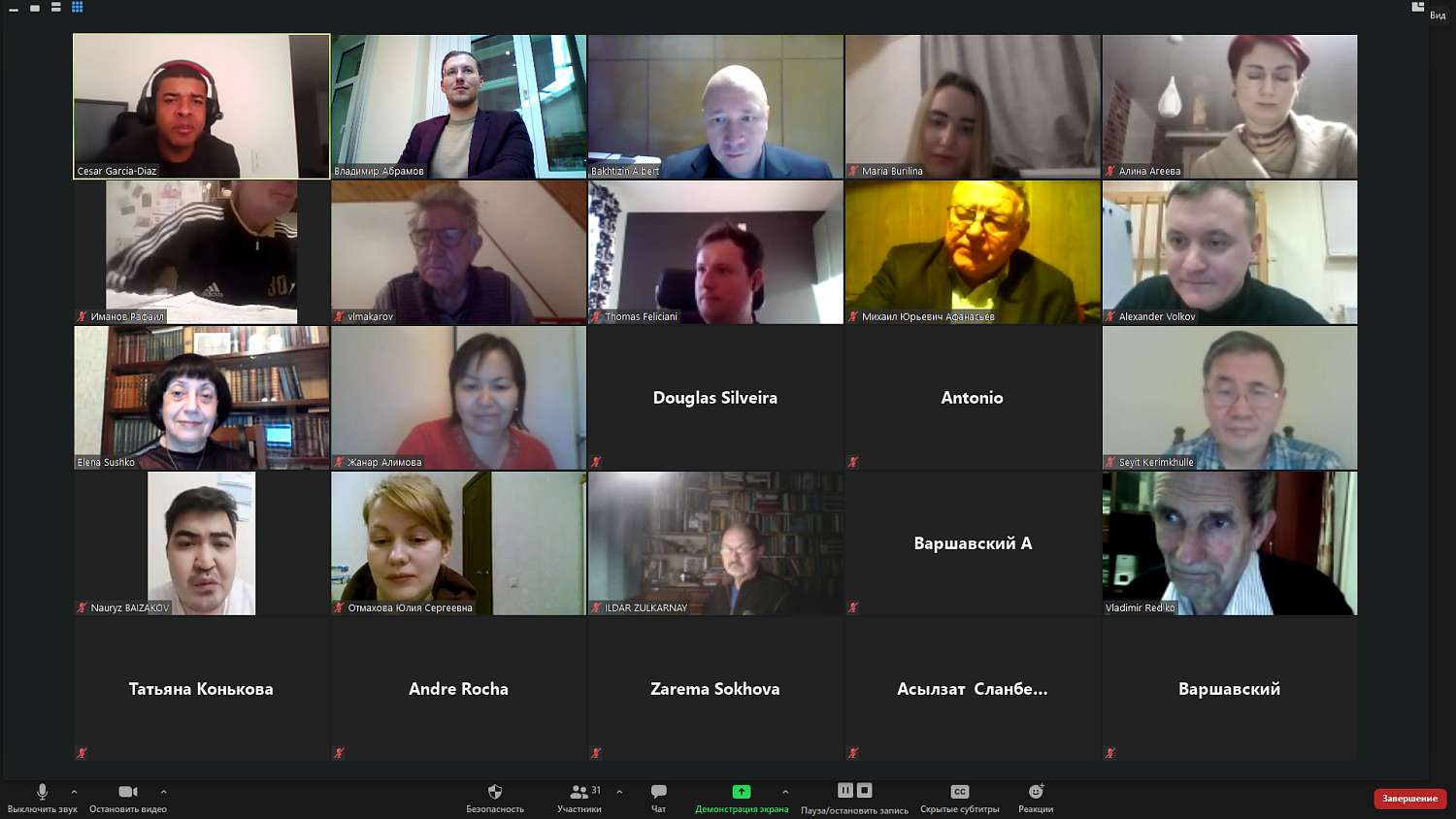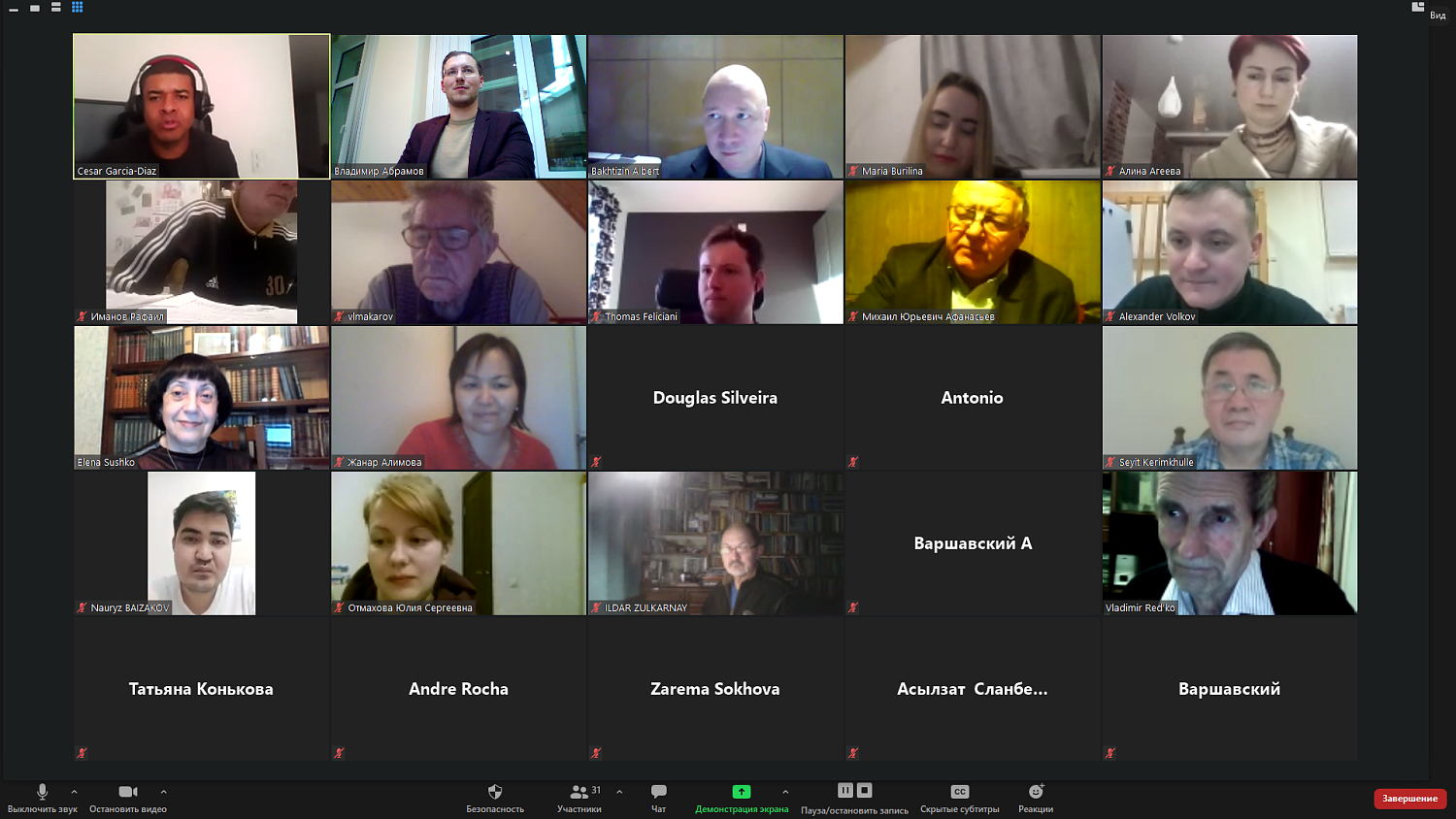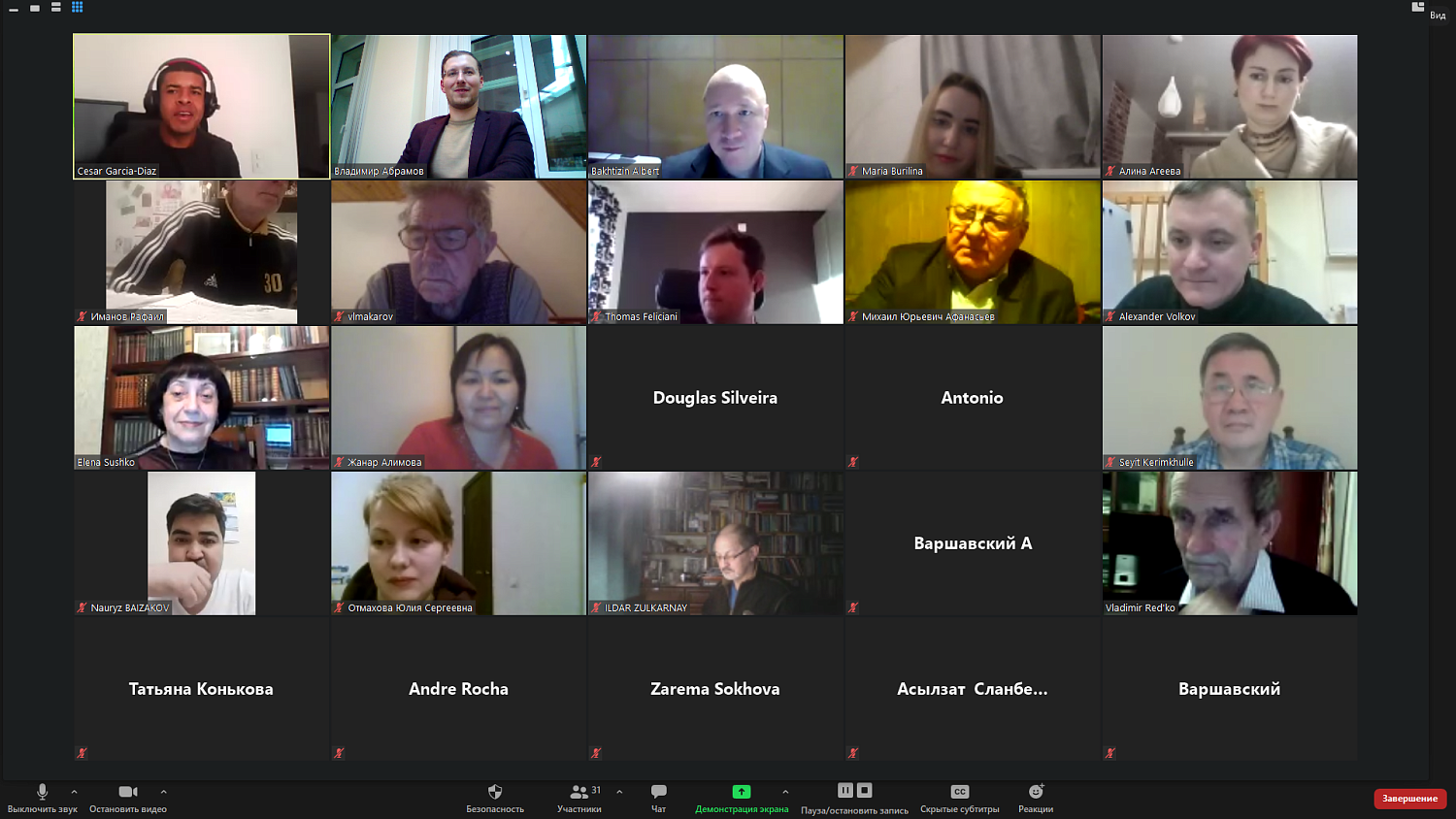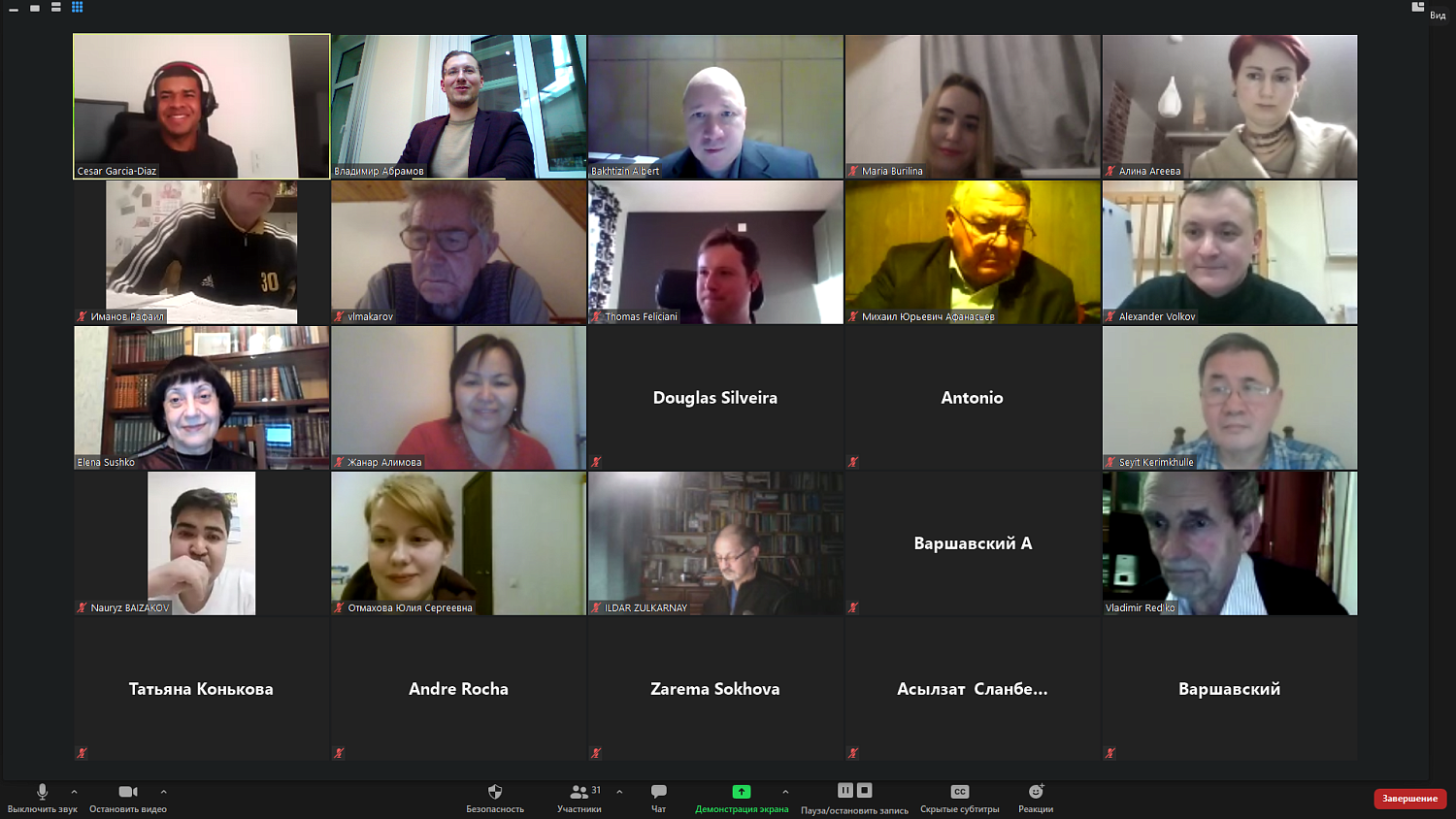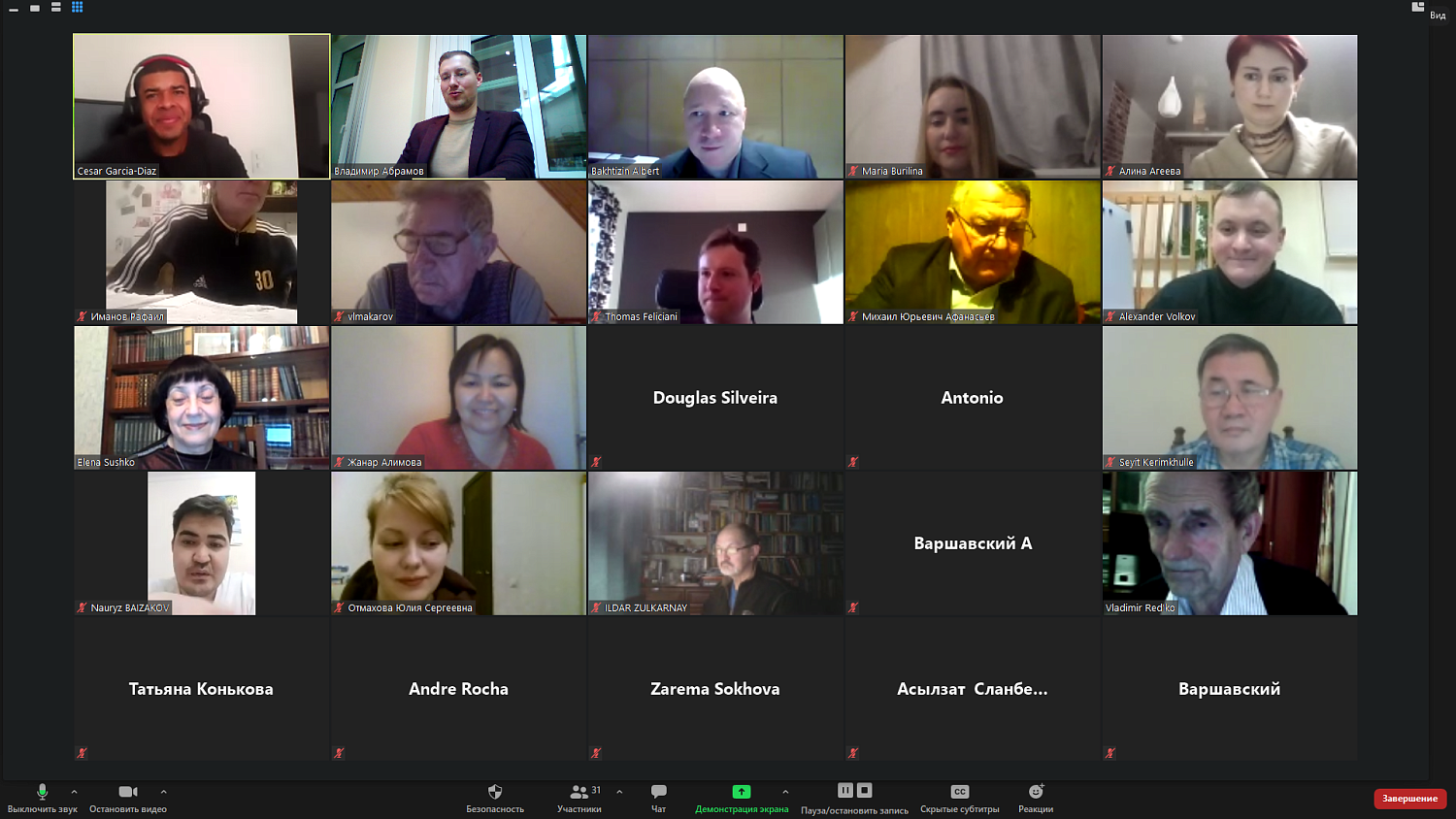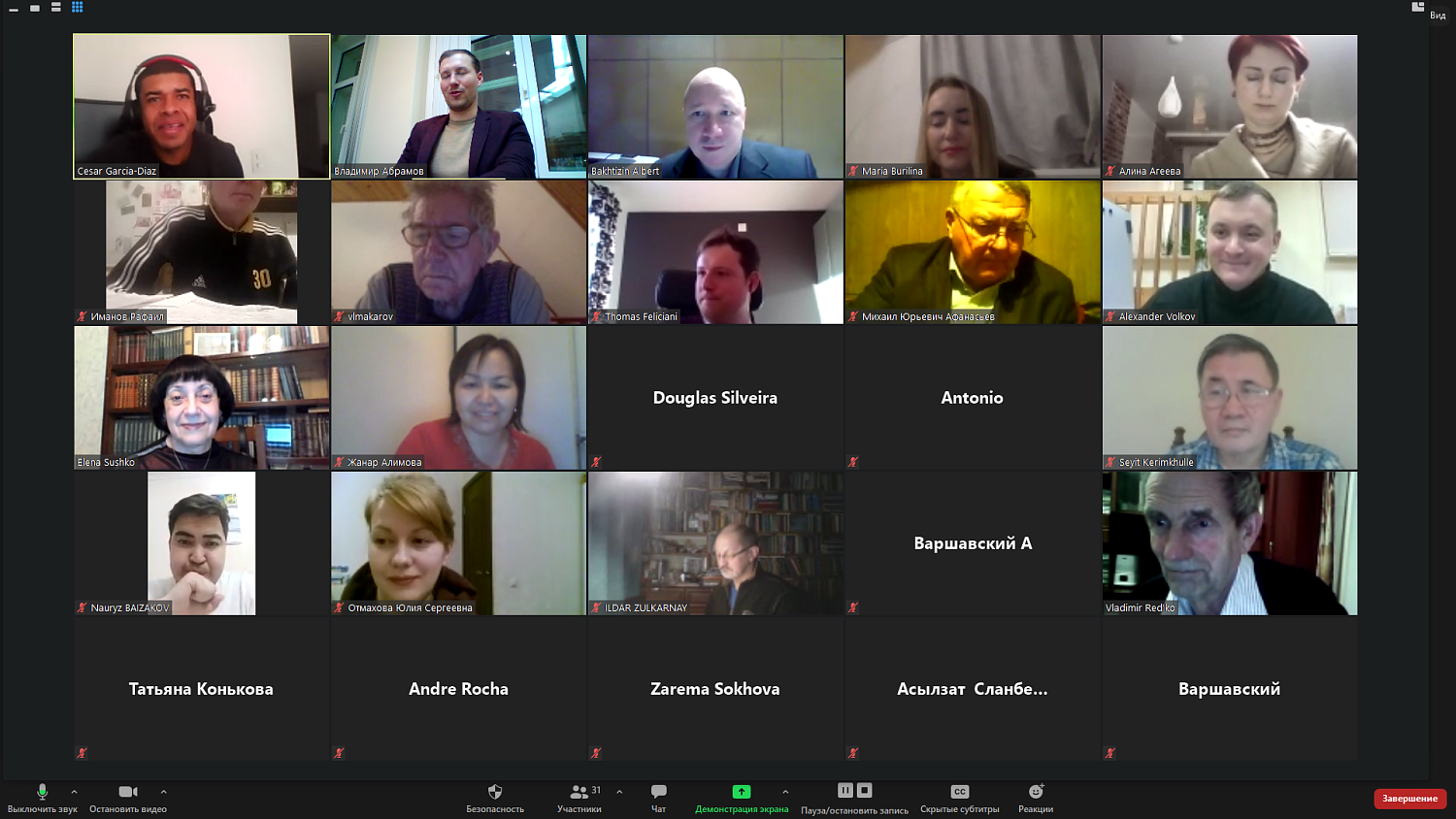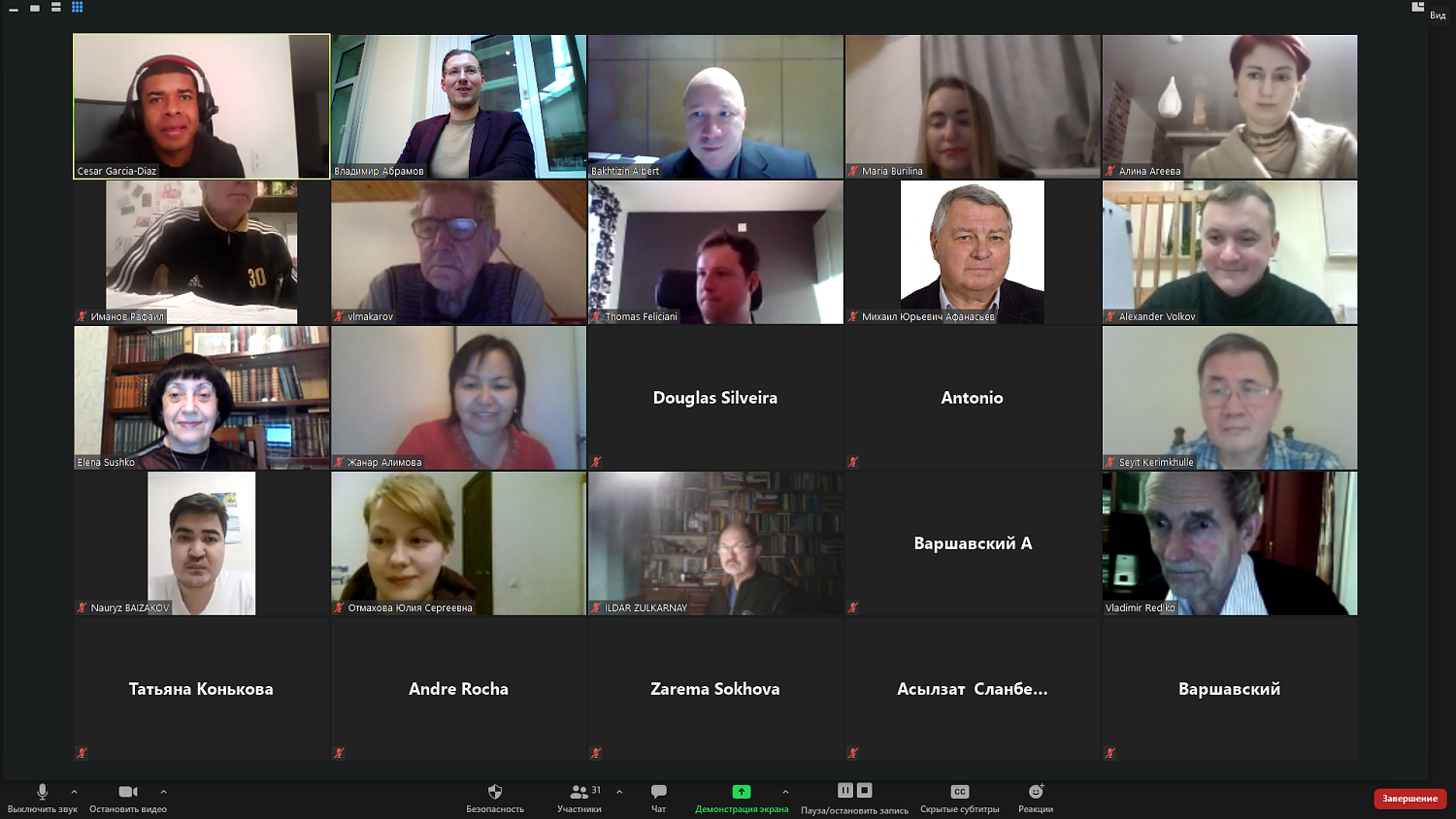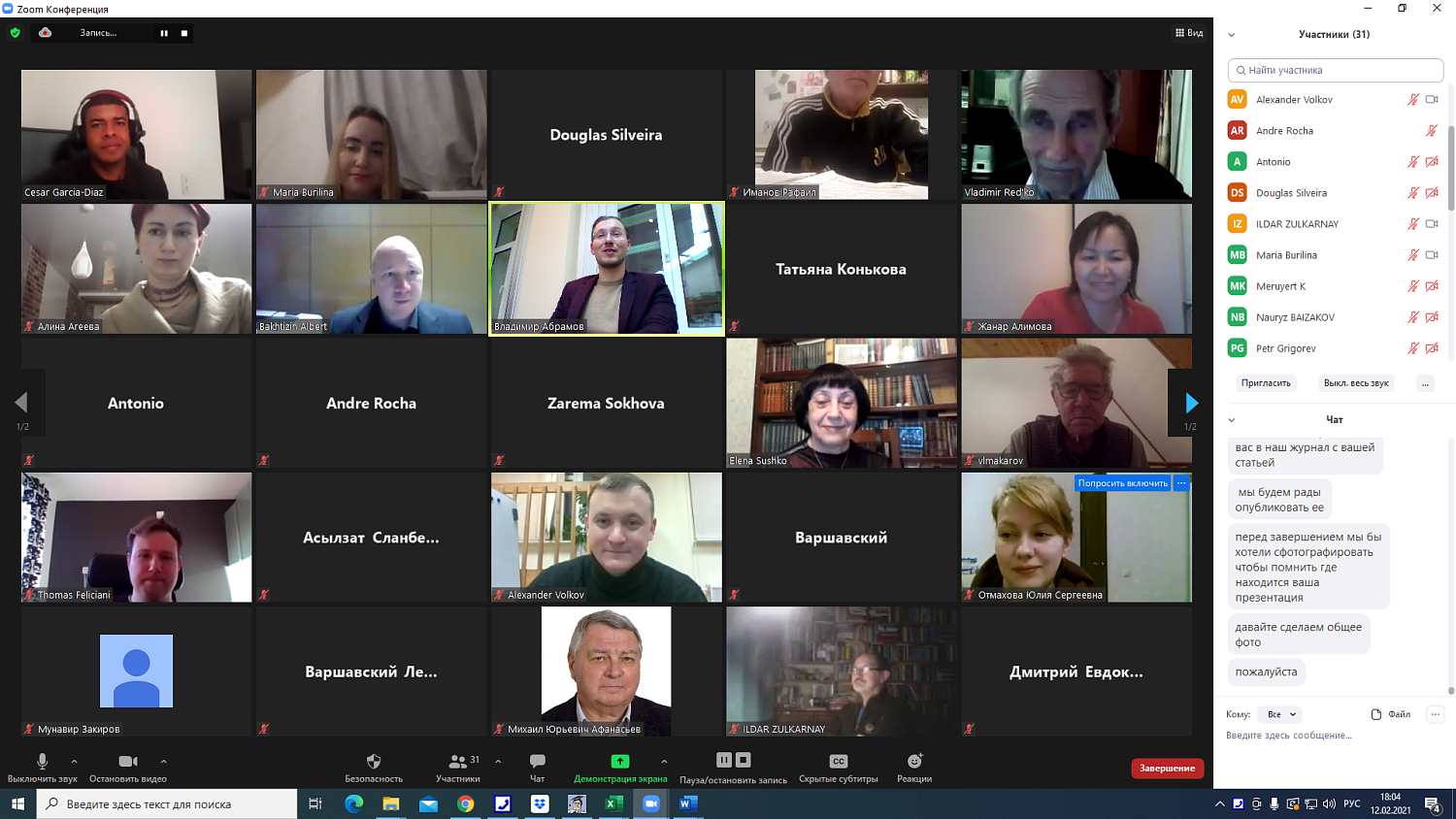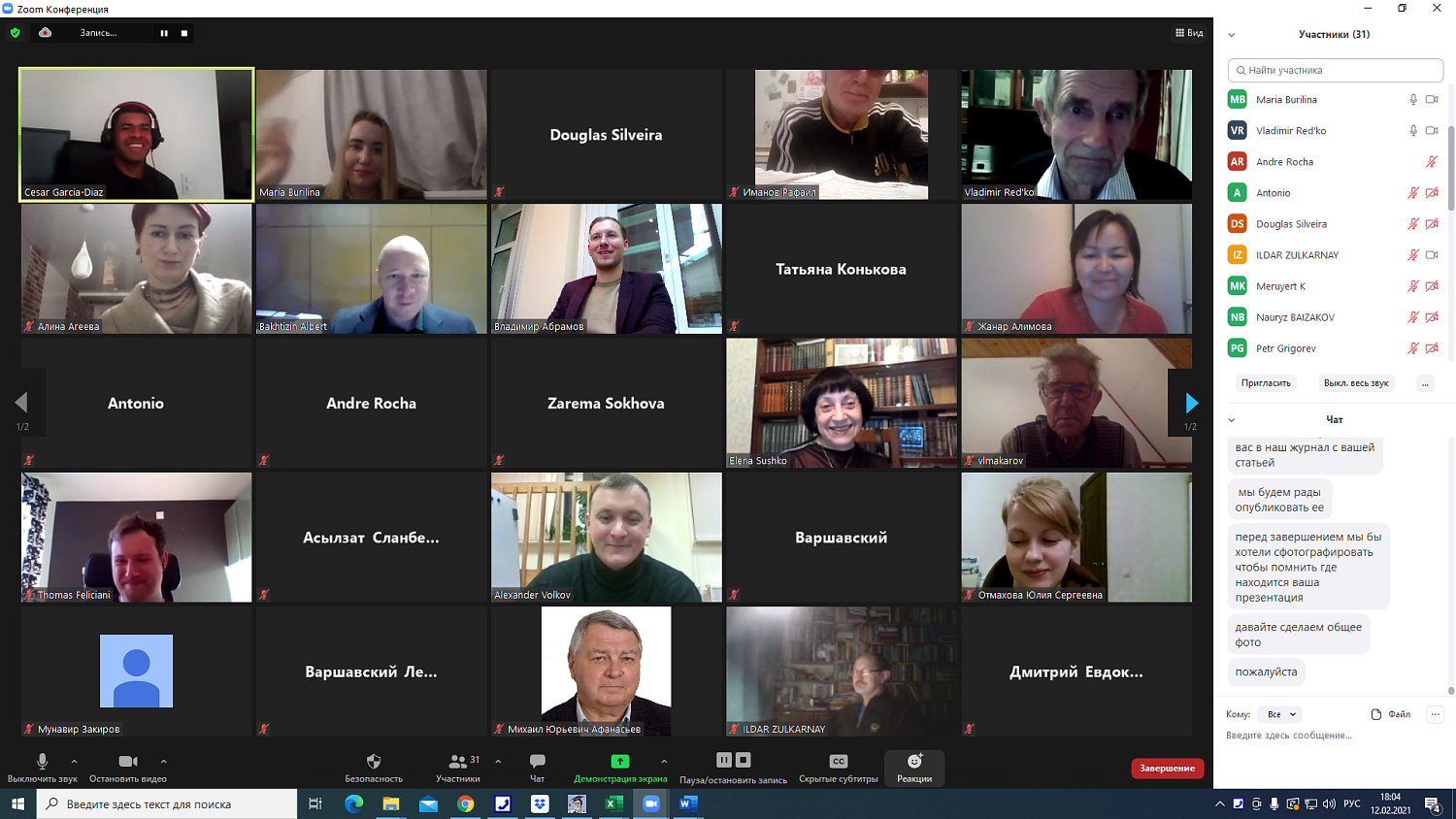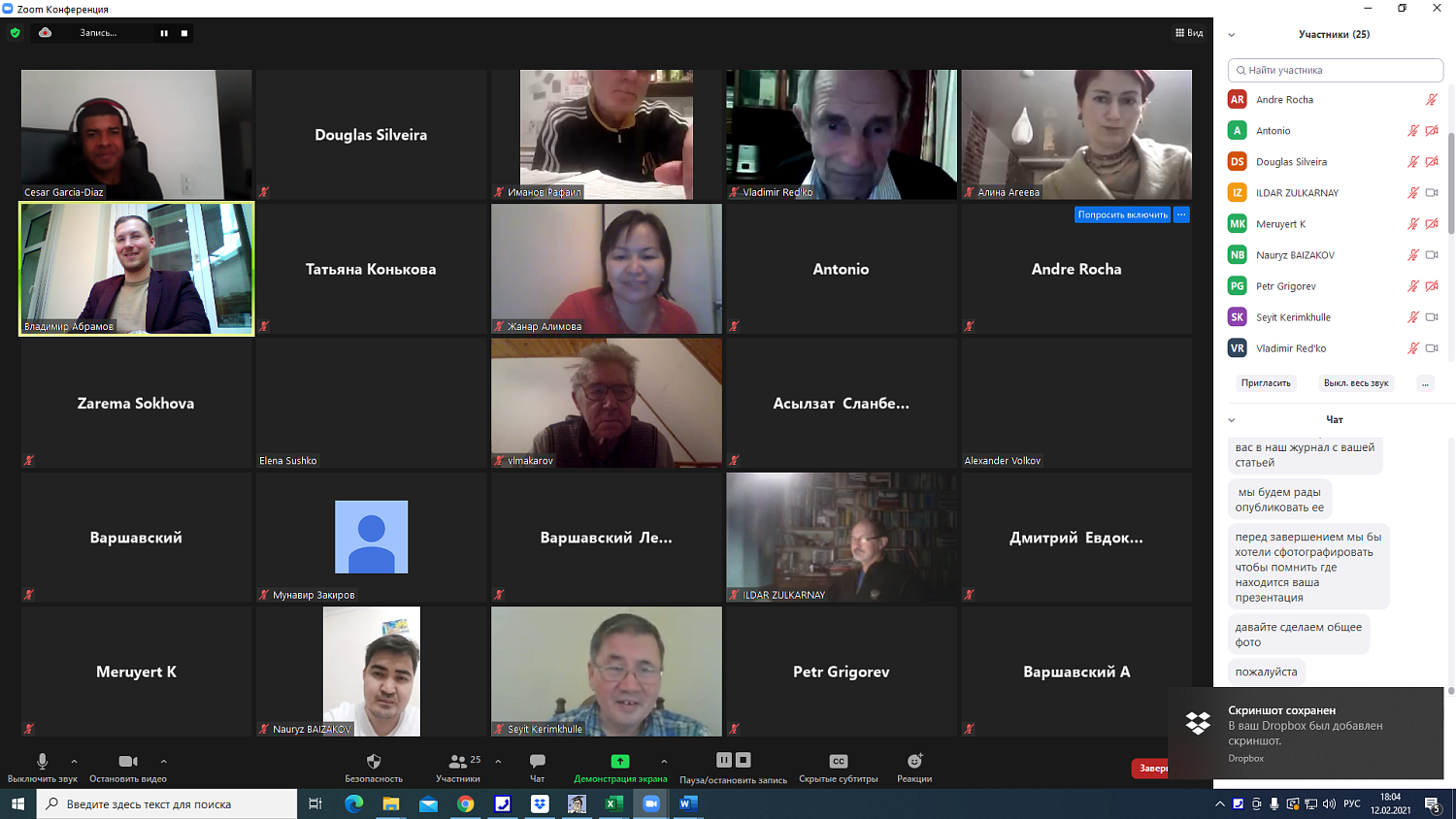12.02.2021 г. прошло заседание международного онлайн-семинара «Искусственные общества и информационные технологии», посвященное докладу Cesar Garcia-Diaz (Pontificia Universidad Javeriana, Богота, Колумбия).
Краткая аннотация. Reflexive phenomena are usually understood in the social sciences as processes that affect themselves recursively. This stems from the mutual altering relationship between participants and the social process they belong to: participants can change the course of the process with their actions and a new state during the evolution of the process can lead to a change in its participants' behavior. This work proposes an agent-based model of diffusion of innovations in a social network to study reflexivity. In this model, agents decide to adopt a new product according to a utility function that depends on two kinds of social influences. First, there is a local influence exerted on an agent by her closest neighbors that have already adopted, and also by herself if she feels the product suits her personal needs. Second, there is a global influence which leads agents to adopt when they become aware of emerging trends happening in the system. For this, we endow agents with a reflexive capacity that allows them to recognize a trend, even if they can not perceive a significant change in their neighborhood. Results reveal the appearance of slowdown periods along the adoption rate curve, in contrast with the classic stylized bell-shaped behavior. Results also show that network structure plays an important role in the effect of reflexivity: while some structures (e.g., scale-free networks) may amplify it, others (e.g., small-world structure) weaken such an effect. The contribution of this work lies in the inclusion of evolving cognitive distinctions as agents decide product adoption in diffusion processes.
В заседании приняли участие представители России (ЦЭМИ РАН, МГУ, Уфимский научный центр РАН, Уфимский государственный авиационный технический университет, Институт экономики КарНЦ РАН, Воронежский государственный университет), Китайской народной республики (Шанхайская компания «Тяньцзин»), Индии (National Institute of Technology Durgapur), Бразилии (Pontifical Catholic University of Rio de Janeiro, Federal University of Juiz de Fora), Ирландии (University College Dublin) и Казахстана (Евразийский национальный университет им. Л. Н. Гумилева, Нур-Султан).
Заявки на участие в будущих семинарах принимаются по адресу: wladimir.abramow@gmail.com
